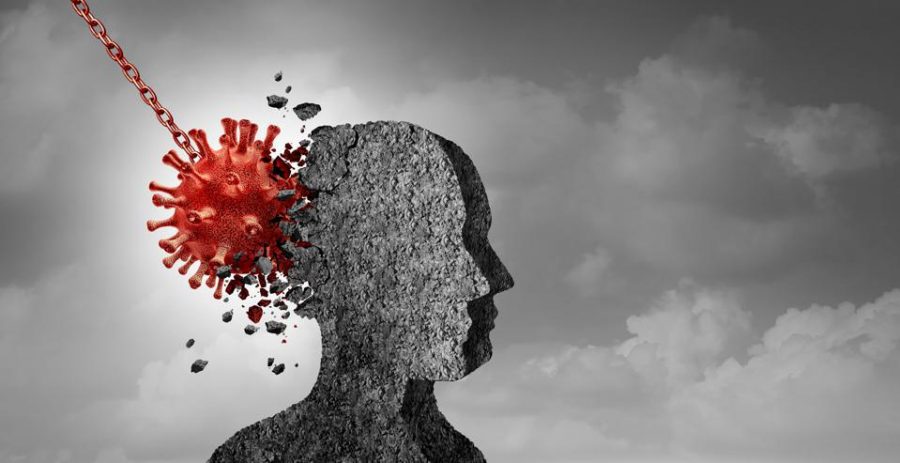Coping with COVID-19
Recent study reveals how students are dealing with the pandemic
September 22, 2020
The COVID-19 pandemic has left many Americans questioning what comes next. It has left some jobless, others are left unable to attend school, and most have been stuck at home at some point. Having to adjust to these challenges may appear to be an insurmountable feat for some, and data chronicled during this period has provided insight into how well college students in America are coping with the new standards the pandemic has left in its wake.
Between the months of March and May, 18,000 college students were interviewed across 14 campuses by the Healthy Minds Network and the American College Health Association.
The information discovered in this study sheds some light on how students have perceived the pandemic. Below are graphs that break down how students responded to the surveys.







On a positive note, 78 percent of students cited their professors as supportive during the pandemic with 10 percent as neutral. A similar statistic follows with 69 percent of students citing their administration as supportive during the pandemic with 13 percent as neutral.
There are more silver linings as 26 percent of students reported illicit substance abuse during the Fall of 2019 with that number falling to 21 percent. 38 percent of students reported binge drinking during the Fall of 2019 with that number decreasing to 24 percent between March and May 2020. Another positive finding saw that the rate of suicidal thoughts decreased to 18 percent, down from 21 percent during the Fall of 2019.
Learning to cope
Stress can manifest itself in many different ways, and if you are finding the pandemic has you on edge then the following information may be able to help. Columbia University’s Irving Medical Center notes that there are 5 different ways this chemical imbalance can form and how to respond to each variable for the best outcome.
Some may feel the need to mobilize, to take control of the problem and solve it. These people are recommended to set achievable goals and counter burning out by taking breaks.
Some may feel the need to run away. They feel that their problems are insurmountable and the only path to success is retreat. These people should set boundaries and attempt to increase the amount of sensory information within their life so they may collect and analyze all facets of a problem.
Some may feel paralyzed. In the wake of a problem, they freeze up, unsure of their next move. These people may also find solace with an increase of sensory information. Scheduling helps to combat the fear of the unknown.
Some may feel disconnected. They dwell on their negative thoughts without coming up with ways to prevent them. Taking the time to think through issues by journaling or reaching out with friends helps ease this stress.
Finally, some may just feel OK. They are able to react to their emotions and pursue their goals. Self-reflection is a good practice for these people to better rely on themselves.
Information was gathered using columbia.edu/student-health.
Ocelot Resources
Few have been left unscathed from the virus’s grasp and its effects will be felt for months to come. With often jobless students unable to return to class, all they can do is listen to the advice of doctors and scientists for the next steps in slowing the spread of the viruses.
Associate dean of Schoolcraft’s Student Support Services, Dr. Michael Oliver, shed some light on how Schoolcraft students can ensure their own safety on and off the campus.
“At times, it can be difficult to determine what is a declining mental health condition in the clinical sense, versus a stress induced, temporary declined mental state,” Oliver explains. “On top of that, it is difficult for most people to be self-aware or knowledgeable enough to recognize they are in a declining mental health situation. And even if they were to recognize signs, denial often sets in.”
Oliver furthers his message by highlighting possible signs that may indicate monitorable mental health struggle. He cites changes in routine, physical appearance, eating patterns, lack or abundance of sleep, inability to get out of bed, short temper and isolation as possible indicators of declining mental health. With this in mind, these may only be a sign if there is no explanation for this behavior. If a student recognizes any of these indicators in themselves, Oliver recommends pursuing a mental health specialist.
To schedule an appointment with a counselor, call Student Relations at 734-462-4486 for a virtual appointment. To file an SC Aware report, visit: schoolcraft.edu/scaware To call campus police, dial 734-462-4424. To learn more or to view the article from which the information was compiled from, visit: chronicle.com.








